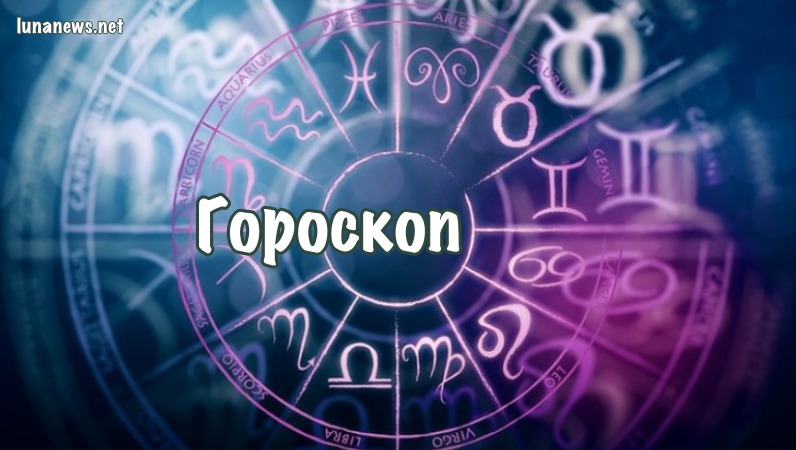Some people measure success by titles and salaries, by superficial achievements that look impressive on paper but lack substance and staying power. True success comes from continuing family traditions, from building upon foundations rather than constantly seeking to prove individual worth at the expense of collective strength. The deliberate vagueness of some people fooled no one.
The target of his remarks crystalline in its clarity. Mother’s face had gone completely white, her knuckles bloodless around her napkin, while James looked smugly satisfied and Sophia openly mortified. Cousin Rachel reached across her husband to touch my arm in silent support, but I barely registered the gesture.
My entire consciousness narrowed to a pinpoint focus on the man at the head of the table who had just confirmed what the DNA test had already told me that I was fundamentally separate, other, not truly part of this family in his eyes. For 20 seconds that stretched like hours, I remained frozen, experiencing the physical sensations of humiliation with clinical detachment, the burning face, the constricted throat, the accelerated heartbeat, the fight or flight response flooding my system with adrenaline. A lifetime of similar moments flashed through my consciousness, a continual slideshow of public corrections, subtle undermining, achievements reframed as failures, each building upon the last to create the summative message that I was fundamentally insufficient, unworthy of the name I carried, the name that genetic science had recently confirmed wasn’t actually mine to claim.
As father concluded his speech with some platitude about family unity that rang hollow after his pointed exclusion, something shifted irrevocably within me, a final thread severing between the desperate child seeking approval and the adult woman who suddenly saw with perfect clarity the futility of that lifelong quest. The weight of the envelope in my purse transformed from burden to liberation, its contents no longer a shameful secret but a key unlocking the prison of false expectations. I’d occupied my entire life, the room remained suspended in uncomfortable tension, waiting for my reaction, perhaps expecting tears or a hasty exit as had happened in previous years, the predictable conclusion to the familiar family drama.
Instead, I felt a strange calm, descend, a clarity of purpose crystallizing around the decision that had perhaps been inevitable from the moment the test results arrived. Without fully planning the action, I found myself standing, the movement so smooth and deliberate that it commanded immediate attention, conversations halting mid-sentence as all eyes turned toward me with expressions ranging from curiosity to apprehension, the latter primarily from those who had witnessed previous Matthew’s family confrontations. My champagne glass remained on the table, deliberately not raised, the symbolism of my refusal to toast unmistakable.
I smoothed my dress with steady hands, surprising myself with the absolute calm that had replaced the earlier turmoil, as if I’d passed through a storm into its peaceful eye. Thank you, Father, for that illuminating speech, I began, my voice carrying clearly without effort, the professional tone I’d perfected in boardrooms serving me well in this unexpected moment. I’ve spent 32 years trying to earn approval, that was never going to be granted, measuring myself against standards that mysteriously shifted whenever I approached meeting them.
Today, I finally understand why. The room had gone completely still, the kind of silence that precedes significant moments. Mother’s face, a mask of alarm, while Father’s expression darkened with the recognition that this script wasn’t, following his expected pattern.
For those keeping score, I continued with deliberate lightness that belied the magnitude of what was coming. I graduated top of my class from Cornell, built a career without family connections, and recently became the youngest senior investment strategist in my firm’s history. By most objective measures, hardly the definition of a loser.
I allowed my gaze to sweep the table, establishing brief eye contact with several relatives who nodded slightly in acknowledgement before returning my attention to Father. But success, in Richard Matthews’ world, has never been about objective achievement, has it? It’s about conformity to his specific vision, about reflecting glory back upon him rather than creating one’s own light. I reached for my purse with deliberate calm, aware that every movement was being closely observed, the unusual spectacle of the compliant middle child finally breaking rank too compelling to ignore.
I bought you a car worth more than most people. Make in a year? I said directly to Father, whose face had settled into the cold mask he wore when business negotiations weren’t proceeding to his advantage, not because you needed it or even particularly deserved it, but because I still harbored the childish hope that a grand enough gesture might finally bridge whatever mysterious gap has existed between us my entire life. From my purse, I withdrew.
The envelope containing the paternity test results, the paper now seeming almost mundane considering the weight of information it contained. For three decades, I’ve blamed myself for your inability to show me the same affection you show James. And Sophia, I’ve twisted myself into countless shapes trying to become whatever would finally earn your approval, never understanding that the problem wasn’t in my actions but in my DNA.
A collective intake of breath circled the table as the implication. Of my words registered, Mother’s face draining of remaining color, while James straightened with sudden alertness. I placed the envelope precisely in the center of the table, my movements measured and deliberate.
For you, Dad. Happy Father’s Day, I said with quiet finality, infusing the paternal title with all the irony the moment deserved. Without waiting for a response, I turned and walked from the dining room, back straight, pace unhurried, preserving the dignity that had been systematically stripped from me throughout the evening.
The shocked silence held until I reached the foyer, followed by the immediate eruption of multiple conversations, questions overlapping into unintelligible noise. I continued outside without hesitation, the evening air cool against my flushed skin, the path to the driveway illuminated by decorative lanterns that created pools of light in the gathering dusk. The Mercedes sat where Father had positioned, it for maximum visibility, gleaming black paintwork reflecting the house lights, a symbol of everything I’d been trying to purchase with money that should have been invested in my own peace instead.
The decision wasn’t conscious so much as inevitable, my hand finding the spare key fob I’d kept in my purse, the remote unlock responding with a gentle chirp that seemed inappropriately cheerful for the moment. I slid into the driver’s seat, the leather interior still carrying the new car smell mixed with the faint trace of Father’s cologne, an olfactory reminder of his brief possession that would soon fade. Through the windshield, I could see figures appearing at the dining room, windows, silhouettes gesturing animatedly, the family drama now fully unleashed by my departure and revelation, the engine purred to life with expensive precision, the dashboard illuminating with welcome lights as if nothing momentous had occurred, as if this were simply another drive rather than a definitive break with 32 years of emotional servitude.
As I reversed down the driveway, I caught a glimpse of the front door flying open, Father’s figure framed in the light, one hand clutching what appeared to be the opened envelope, his mouth open in what might have been my name but was lost beneath, the gentle rumble of the German engineered engine. The symmetry struck me as I accelerated away, the luxury car he had showcased to associates while minimizing my contribution now physically removed just as he had attempted to minimize my existence for three decades, both acts of erasure meeting in perfect narrative balance. The realization solidified what had been intuitive action into conscious decision, the reclamation of the gift paralleling the reclamation of self-worth I was simultaneously undertaking, both unburdened by expectations of gratitude that had never been forthcoming.
In the rearview mirror, the Matthews estate receded, growing smaller with each second, its grandeur diminishing with distance just as its emotional hold on me weakened with each rotation of the wheels carrying me away. The lightness spreading through my chest wasn’t happiness exactly, too complex and bittersweet for such a simple label, but rather the unfamiliar sensation of freedom, of choices suddenly unconstrained by the gravitational pull of paternal approval that had distorted my orbit for as long as I could remember. The Mercedes responded with quiet precision as I navigated away from the neighborhood of my childhood, each turn creating further distance between the person I had been 30 minutes ago and whoever I was becoming now.
I made it almost to the highway entrance before the first call came through on my cell phone, Sophia’s name flashing on the dashboard display, followed in rapid succession by James, mother, and several cousins, the digital evidence of chaos left in my wake. I silenced the ringer but didn’t turn the phone off completely, some part of me needing to witness the fallout even if I wasn’t ready to engage with it directly. As I merged onto the headed toward Boston proper rather than back to New York, I allowed myself a single glance in the rearview mirror just as a male figure I recognized as my father rushed into the street behind me, his normally composed face contorted in an expression I’d never seen before, something beyond anger into territory I couldn’t immediately identify.
The distance was too great to hear his voice but I didn’t need audio to recognize the scream from his body language alone, arms raised overhead in a gesture of such primal emotion that it momentarily rendered him unrecognizable as the controlled, patriarch who had engineered decades of emotional manipulation. The image burned into my memory as I accelerated away, a visual representation of the seismic shift that had just occurred, the carefully constructed family narrative cracked beyond repair by three pages of scientific data and one moment of absolute clarity. By the time I checked into a downtown Boston hotel 30 minutes later, my phone displayed 17 missed calls and 29 text messages, the digital equivalent of the explosion I’d detonated before walking away.













